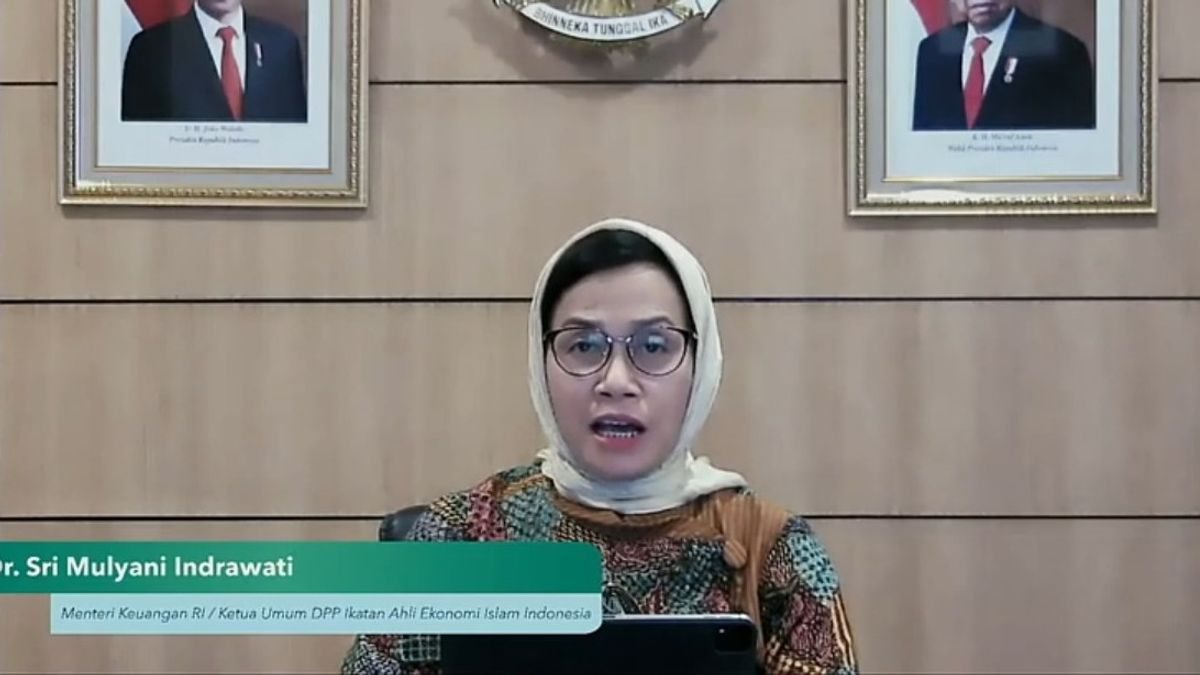JAKARTA - Minister of Finance (Menkeu) Sri Mulyani expressed her appreciation for the launch of the Islamic economics textbook. According to him, Islamic economics has an increasingly important role in the national economy.
"The launch of this book is an initiative and also a breakthrough in the midst of the lack of Islamic economics and finance literature in Indonesia," he said virtually at the Launching of the Islamic Economics Textbook, Tuesday, June 29.
According to the Minister of Finance, the values contained in the sharia economy can encourage a fair and equitable national economy in all aspects, especially in the inclusive education, health and welfare sectors.
In addition, the Minister of Finance also explained that in Islamic economic principles there is the concept of a social safety net, namely through protection for groups that have more vulnerability than other groups.
"If understood, this is very in line with the principle of social justice for all Indonesian people, and also suitable for building a social safety net scheme through various social assistance," he said.
Furthermore, the former IMF and World Bank boss also highlighted the distribution of wealth through profit sharing schemes, which he said could create financial system stability. He said this principle could be useful for managing risk more wisely and avoiding dangerous decisions.
"These sharia economic principles are in line with the four main pillars of the sustainable development goal which includes aspects of human development, social strengthening, the economic sector, and continuing to protect the environment," he said.
The Minister of Finance assessed that Indonesia has all the potential to become a leading country in the development of the global sharia economy. However, there are several things that still need to be improved, including the quality of human resources.
“Availability of sufficient human resources, both in terms of quantity and quality, is a top priority that must be resolved immediately. For this reason, the support of the education sector with the establishment of sharia study programs is very important in filling the current needs of the industry," he explained.
To note, the government through the National Committee for Islamic Economics and Finance (KNEKS) today launched three sharia economic textbooks and an internship/work practice guidebook aimed at further expanding knowledge and understanding of Islamic economic principles.
Meanwhile, the textbook is intended for the undergraduate level of the Islamic economics study program which includes Introduction to Islamic Economics, Islamic Development Economics, and History of Islamic Economic Thought.
The English, Chinese, Japanese, Arabic, and French versions are automatically generated by the AI. So there may still be inaccuracies in translating, please always see Indonesian as our main language. (system supported by DigitalSiber.id)













